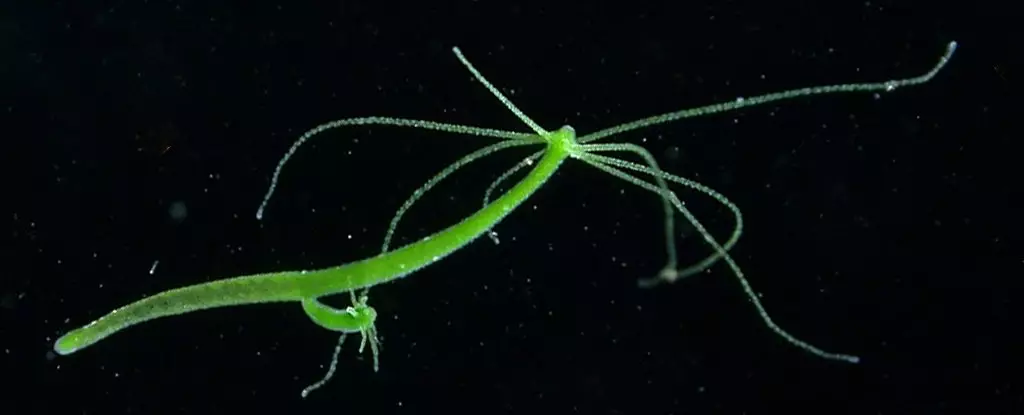The study conducted by University of Kiel zoologist Christoph Giez and his colleagues on hydra, brainless creatures found in freshwater, has revealed a surprising complexity in their nervous system. Despite lacking a brain, hydra possess a sophisticated network of neurons that allow them to balance the sensations of hunger and fullness.
Nervous System Similarities
Interestingly, hydra have two distinct nervous systems analogous to our central and peripheral nervous systems. The N4 network is responsible for digestion, while the N3 network controls the feeling of fullness. This unique setup allows hydra to regulate their behavior based on their internal metabolic state, showing an impressive level of complexity for such simple creatures.
Through a series of experiments, Giez and his team demonstrated that hydra are capable of detecting when they are full and adjusting their behaviors accordingly. Fed hydra showed reduced attraction to light stimuli and suppressed natural movement patterns, indicating a shift in their priorities from searching for food to resting after a meal.
Role of Neurons
Further experiments revealed the specific role of the N3 neurons in controlling the behavior of hydra. When the outer network of neurons was removed, the animals lost their light orientation abilities and exhibited increased mouth opening behavior. This suggests that the N3 neurons play an inhibitory role in mouth opening and are crucial for integrating stimuli and controlling locomotion.
The intricate nervous systems of hydra shed light on the early evolution of animals and the development of complex behaviors related to hunger and satiety. While the researchers did not observe direct physical connections between the two nervous systems, they hypothesize that communication between them occurs chemically, illustrating a primitive form of neural signaling.
Known for their extraordinary regenerative abilities and resistance to aging, hydra have long captured the interest of researchers. This latest discovery about their nervous system suggests that studying Hydra could provide valuable insights into the evolutionary origins of hunger and the development of neural control mechanisms in more complex organisms.
The study on hydra conducted by Giez and his team has unveiled a remarkable level of complexity in the nervous system of these brainless creatures. By understanding how hydra are able to sense hunger and fullness without a brain, researchers can gain valuable knowledge about the evolution of neural systems and the intricate relationships between behavior, metabolism, and nervous function.



Leave a Reply